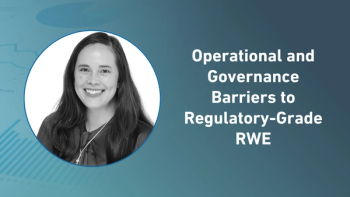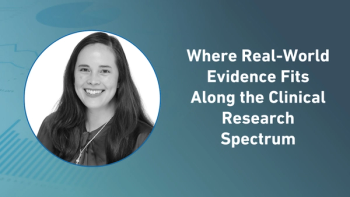
- Applied Clinical Trials-10-01-2021
- Volume 30
- Issue 10
Interoperability Cracked as Patients Collect Health Records from Hospitals
Embracing patient empowerment in data collection can lead to new standard of care.
Medical records and interoperability are major issues in countries around the world. Sometimes departments in the same hospital exchange data incorrectly. Sometimes hospitals in the same country exchange data incorrectly. So, expecting international interoperability seems like a dream to many. But that is what we have achieved as a patient-led start up. For the first time, patients using Andaman7 are collecting their health records from both US and EU-based hospitals, at the same time, in the same software and with them in total control. Health data is normalized in their personal health record (PHR) meaning several exchange protocols, formats and interfaces are used to grab the data and store it in a uniform manner inside their smartphones. Storage of the data in a smartphone is key–not only does the patient have instant access to their data but it is more secure than cloud-based systems and under the patient’s total control. For the patients themselves this represents a huge leap forward in health data empowerment.
Andaman7 were encouraged by the patients’ positive feedback: “Navigating the medical system can be a stressful experience over and above the stress related to your own medical condition. It has been a challenge to keep track of accurate and up-to-date health data which has been scattered across several hospitals, and–in the case of my wife and me–across several countries. With the Andaman7 app, my wife and I were able to gather our health data from hospitals in the US and Belgium and manage it in one app in an organized and intuitive way. It feels right to be in charge of our data to ensure a smooth transition of our medical records from the US to Belgium. In addition, we can share our health records with each other and with our doctors if needed. It can only be hoped this becomes a common option.”
The next step, with patient consent, is to send data back to the hospitals–something Andaman7 is ready for. This innovation has far-reaching implications for the collection of real-world data (RWD) and the forming of real-world evidence (RWE). Andaman7 uses FHIR for inbound and outbound health data exchanges (in addition to other, de facto standards). Internally, they also use a very innovative liquid data model and ‘no protocol API,’ and fully support LOINC and SNOMED for high quality structured data. Properly used, RWD could enable us to reach one of the holy grails of medicine–the right treatment, for the right patient, at the right time.
Empowered international patient data access also has implications for tackling global health inequities. Africa bears the world’s greatest disease incidence and has significant healthcare shortages. Yet it has emerged as a new breeding ground for innovative digital health solutions. Our work with African Sustainable Development Advisors (Afrisda, Inc.) leads us to believe Africa can ‘skip one’ in health digitalization. The framework is already in place–large parts of the continent skipped the landline telecommunication stage and went straight to mobile. Now, there is an opportunity to avoid the step of disjointed, physical healthcare and instead embrace teleconsultations, electronic health records (EHRs) and patient empowerment platforms (PEPs). This could benefit local populations and increase RWD and RWE from diverse populations for global therapy developments. However, to truly seize this opportunity patients must be involved in every stage–from development and process to information access and solutions.
The recent controversy in the UK over the GP Data for Planning and Research program shows what happens when patients do not feel informed about how their data will be used. The initial launch was delayed following a public backlash over a lack of patient involvement and awareness. Now, it has been announced the program will not go ahead until key steps are met. Crucially, they include patient ability to opt out and back in and a trusted research environment. However, it is still only focusing on national interoperability.
To truly seize the opportunities of a global health data revolution we must embrace patient empowerment. International interoperability is a huge step forward to achieving that.
Vincent Keunen, CEO, Founder, Andaman7
Articles in this issue
over 4 years ago
Sites Still Necessary for Decentralized Trialsover 4 years ago
The Evolution of Site Selectionover 4 years ago
Utilization of EMS Data in Site Selectionover 4 years ago
“Warm and Ready” Clinical Trial Sitesover 4 years ago
Applied Clinical Trials October 2021 Issue (PDF)over 4 years ago
FDA Officials Caught in Political Crossfireover 4 years ago
Europe Seeking Clarity in Complex Clinical Trialsover 4 years ago
Perspectives and Guidance for Effective eCOA in Global DCTsNewsletter
Stay current in clinical research with Applied Clinical Trials, providing expert insights, regulatory updates, and practical strategies for successful clinical trial design and execution.




